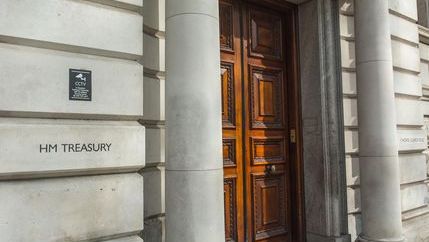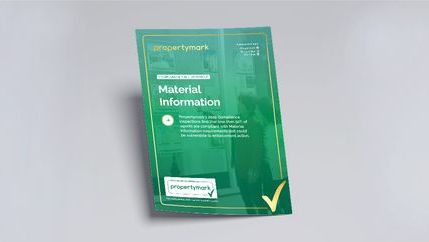Single sanctions list launches on 28 January 2026 for simpler checks
All UK sanctions designations maintained by the UK Government will be consolidated into an official list and updated in one place. This is a significant operational change for property agents, auctioneers and other regulated businesses, which should make checking clearer and more straightforward. Sanctions compliance are part of wider financial sanctions and anti-money laundering obligations, and failures can carry serious legal and reputational consequences.
Draft Written Statement Terms issued with clarification sought by Propertymark on some specifics
The Assured Tenancies (Private Rented Sector) (Written Statement of Terms, etc. and Information Sheet) (England) Regulations 2026 have been published in draft by the UK Government. We have engaged with the Ministry for Housing, Communities and Local Government (MHCLG) to provide feedback on the regulations, which currently fail to acknowledge common real-world scenarios, such as overseas property owners and unique arrangements for vulnerable tenants or tenants with a disability.
Agent input is vital on proposals to reshape enforcement of housing offences
The Sentencing Council has launched a 12-week public consultation on new sentencing guidelines for housing offences, including unlawful eviction, unlawful harassment, Houses in Multiple Occupation (HMOs) and housing standards breaches. For property agents, the proposals underline the importance of compliance, record-keeping and professional standards and present a clear opportunity to influence how the guidance is shaped.
TPO raising consumer awareness of conditional selling
The Property Ombudsman (TPO) has issued new guidance in responding to growing concern about the prevalence of aggressive practices in the home-buying process, empowering buyers to recognise and challenge unfair practices. With complaints on the rise and increased scrutiny from redress schemes and Trading Standards, estate agents should take time to review their processes, staff training and messaging to ensure compliance.
Vital intel for property agents as Ofgem becomes heat networks regulator
Formal regulation marks a major shift in how these systems are overseen and how consumers are protected. For property agents, this change is important because it will affect how heat networks are operated, what information consumers must receive, and how agents advise clients and market properties connected to networks. Hundreds of thousands of homes, particularly in blocks of flats and new developments, are already connected, and their use is expected to grow as part of the UK’s decarbonisation plans.
Operation Jupiter: CMP non-compliance will not be tolerated
The Central England Trading Standards Authorities (CEnTSA) has published a report on a three-year enforcement project across the West Midlands that targeted CMP failures by letting agents and helped protect more than £11.1 million in client money. Propertymark’s compliance team supported the operation by answering hundreds of enquiries from Trading Standards and providing witness statements when required.
On-the-spot support for members adapting to regulation shifts
Propertymark audit visits are receiving excellent feedback and giving firms greater confidence in their compliance processes—challenging the perception that audits are designed to catch agents out. Increasingly, members use the visits as a practical check on how daily procedures work and to identify improvements early.
Spring 2026 is set to show new growth for pooled client accounts
Propertymark shared member survey data to illustrate the challenges faced by agents when the UK Government requested evidence on how the UK Money Laundering Regulations could be improved. Ministers have listened, and regulations expected to take effect in early 2026 will have sensible changes to Customer Due Diligence and improve access to compliant business banking services for agencies.
CMA rejects pleas for sector-specific guidance as action starts against businesses
Despite acknowledging concerns from Propertymark and others that property firms find pricing more complex because of tax, fees, and other variables, the Competition and Markets Authority (CMA) has pressed ahead with publishing generic guidance on price transparency under the Digital Markets, Competition and Consumers Act 2024. From 6 April 2025, the DMCCA replaced the Consumer Protection from Unfair Trading Regulations, so the CMA’s approach will shape day to day advertising for every agent.
Further change for holiday lets with new licensing and standards
Rules for short-stay accommodation in Wales are becoming more complicated. New licensing standards, tax changes, planning rules and a visitor levy are all being introduced, creating major implications for agents and landlords. For property professionals, this brings both challenges and opportunities — the risk of higher costs, reputational damage, and penalties for non-compliance, but also the chance to stand out by offering well-managed, compliant accommodation that builds trust with guests and demonstrates higher standards.
UK Government confirms new AML supervisor — no change for property agents
The Financial Conduct Authority (FCA) will become the Single Professional Services Supervisor (SPSS) overseeing Anti-Money Laundering and Counter-Terrorism Financing (AML/CTF) compliance for the legal, accountancy, and trust and company service sectors. HMRC will continue to supervise agents under the Money Laundering Regulations, and firms that are already compliant do not need to make any changes to their existing AML procedures.
Clear and workable process is needed for an effective financial sanctions regime
Following major changes in global sanctions since 2018, the Office of Financial Sanctions Implementation (OFSI) has sought views on how to update its penalty, disclosure, and settlement frameworks. Reforms should both strengthen deterrence and make it easier for businesses, including property agents, to comply and report breaches confidently.
Leasehold property managers could lead the sector on universal qualifications
The Ministry for Housing, Communities and Local Government (MHCLG) is considering the design of transparency and standardisation measures to be implemented in England and Wales under the Leasehold and Freehold Reform Act 2024. In addition, it has outlined new proposals around the fees and charges leaseholders pay, reform of the major works regime, and mandatory qualifications for managing agents.
The stopwatch issue - preparing for Awaab's Law in the PRS
From 27 October 2025, fixed, enforceable timeframes will be in place for social landlords in England to investigate, make safe and start prevention works to address hazards (including damp and mould), with powers to require alternative accommodation if a home can’t be made safe in time. Similar requirements are set to be extended to the private rented sector (PRS), so now is the time for agents to adopt best practice, future-proof their businesses, and protect tenants and properties.
Compliance Café: Material Information
Propertymark’s 2025 Compliance inspections find that less than 50% of agents are compliant with Material Information requirements and could be vulnerable to enforcement action.
£10 billion could be laundered through the UK property sector every year
The 2025 National Risk Assessment (NRA) has once again placed the property sector in the spotlight as one of the most attractive ways for criminals to conceal illicit wealth. Complex ownership structures, offshore companies, and opaque trusts continue to disguise the identity of the individuals behind transactions, with both residential and commercial sales and lettings vulnerable.
















